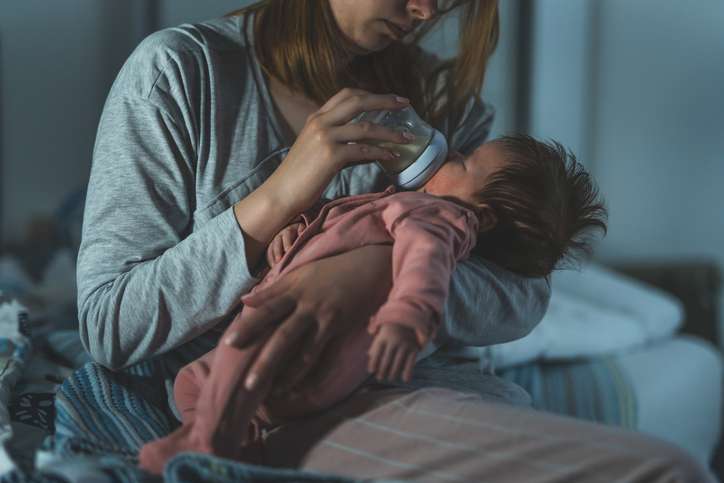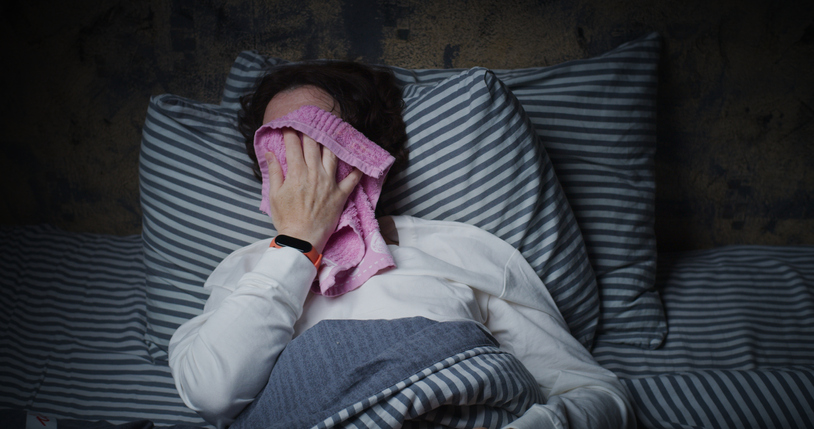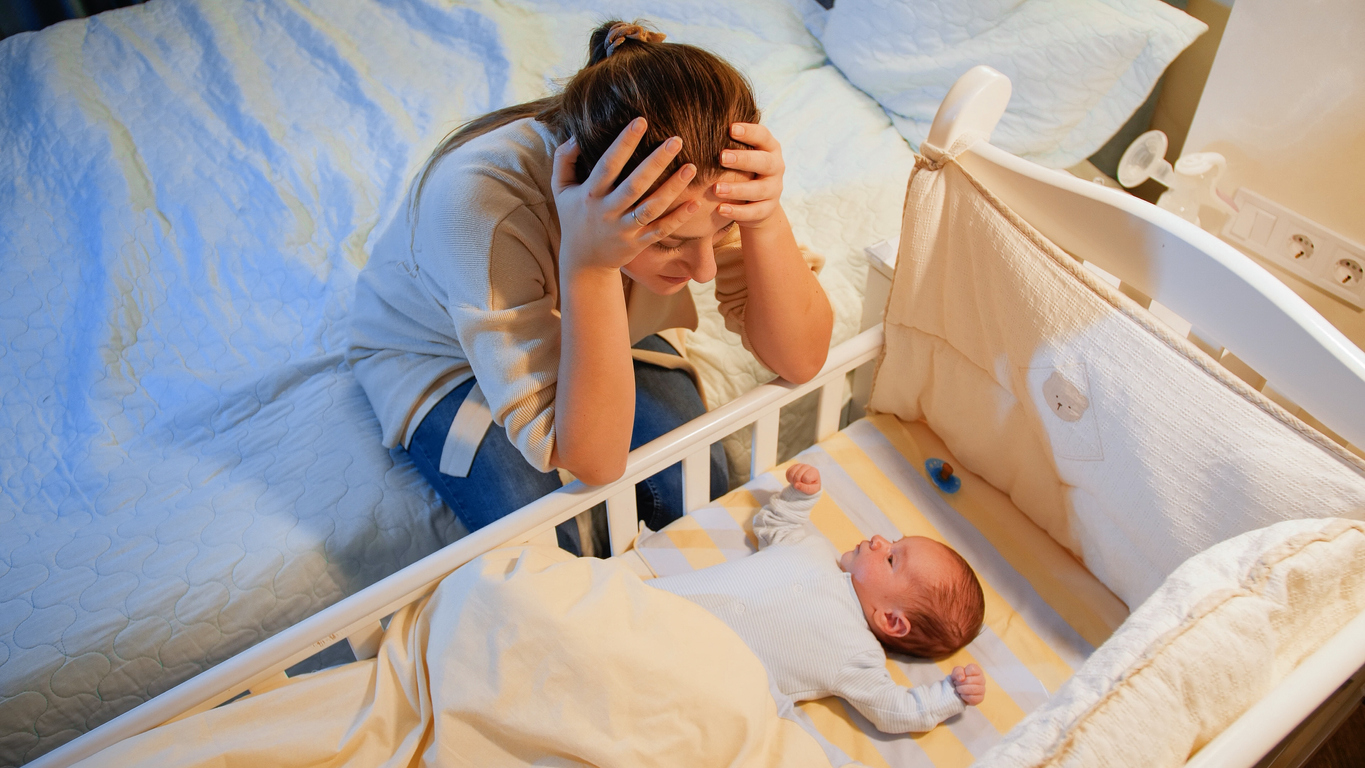Postpartum Night Sweats: What To Do

For new moms, the postpartum period is often a whirlwind! As you begin to adjust to life with your new baby, you may experience some unexpected postpartum symptoms, such as postpartum night sweats.
It’s common for many new moms to experience night sweats and hot flashes during the postpartum period. What causes postpartum sweating in the middle of the night, and what can you do about it?
We’ve compiled some helpful information below, including when to talk to a healthcare provider.
Related: The Ultimate Guide to Postpartum Care (From Underwear to Hair Loss)
What are Postpartum Night Sweats
When you were pregnant, your body went through many incredible changes to accommodate the growing baby. After giving birth to your new baby, it will take some time for your body to adjust to this additional huge change.
One common postpartum symptom is postpartum sweating, particularly at night. If you’ve woken up in the middle of the night drenched in sweat, you might be experiencing postpartum night sweats.
Postpartum night sweats are fairly common. Many women experience hot flashes during pregnancy, about 30%, and the majority of those will go on to experience night sweats postpartum.
In conjunction with sweating at night, you might also find that you experience excessive sweating and urination during the daytime hours. Thankfully, postpartum sweats usually resolve fairly quickly.
What Causes Postpartum Night Sweats
Excessive sweating is a common postpartum symptom for many women, but what causes postpartum night sweats?
After pregnancy, your body is working hard to adjust to fluctuating hormonal changes. Your body’s hormone levels – particularly progesterone and estrogen - decrease in the weeks after giving birth.
These decreases in your body’s levels of estrogen and progesterone are similar to what women experience when they go through menopause, which is why some new moms experience night sweats and hot flashes postpartum.
Your body is incredible at making sure it has everything your little one needs to grow and thrive, and during pregnancy, that requires hanging onto extra fluid to support your pregnancy.
Now postpartum, your body is working hard to get rid of those excess fluids.
Postpartum night sweats can also be caused by hyperthyroidism or other thyroid issues. If you have concerns that sweating may be caused by a thyroid issue, talk to your doctor.
How to Deal with Postpartum Night Sweats

-
Stay hydrated
It might seem counterintuitive since your body has a lot of excess fluid right now, but staying hydrated is important during this period, especially if you are breastfeeding. Try to drink plenty of water - especially cold water - to help yourself stay hydrated and cool.
-
Turn on the air conditioning
During warm summer months, air conditioning can be a huge relief! If you can, turn down the air conditioning at night to keep your bedroom cool. You can also turn on a fan or open a window to help cool things down.
-
Avoid trigger foods
Consuming things like alcohol, hot liquids, caffeine, and spicy foods can all raise your body temperature and contribute to night sweats. Avoid consuming these foods to help you stay cool.
-
Choose your pajamas wisely
Avoid heavy or thick pajamas and instead opt for loose-fitting light layers. You should also consider wearing natural fabrics, like cotton and linen, rather than synthetic fabrics since natural fabrics are better at letting your skin breathe and keeping your body cool.
-
Change your sheets
Your sheets can help keep you cool or make you feel hotter. Use lightweight or moisture-wicking sheets to help yourself stay cool. If you wake up in a pool of sweat, try sleeping on a towel that you can quickly change in the night.
-
Take naps during the day
You might find that your postpartum night sweats are keeping you up at night and preventing you from getting a good night’s sleep. If that’s the case, allow yourself to take naps during the day if you need to.
When to Talk to Your Healthcare Provider

Usually, night sweats will go away on their own, but when should you talk to your OB-GYN?
If your postpartum night sweats continue for longer than a few weeks after giving birth, it can be helpful to contact your doctor.
Continued excessive sweating and hot flashes might be a sign of conditions like hyperthyroidism, diabetes, hypoglycemia, postpartum thyroiditis, or postpartum depression.
If your hot flashes and night sweats last longer than a few weeks after delivery, or if you also have a fever, this could be a sign of an infection or postpartum complication and should be addressed by a healthcare provider right away.
Other signs of postpartum complications that require immediate medical attention include:
- Large blood clots or significant bleeding 3+ days after delivery
- Pain or burning during urination
- Persistent fever
- Severe cramping
- Trouble breathing
- Mental health issues such as depression or anxiety
While postpartum night sweats can be distressing and exhausting, they usually don’t have a serious underlying cause. However, if they persist, your doctor will be able to explore any underlying causes and provide treatment as necessary.

